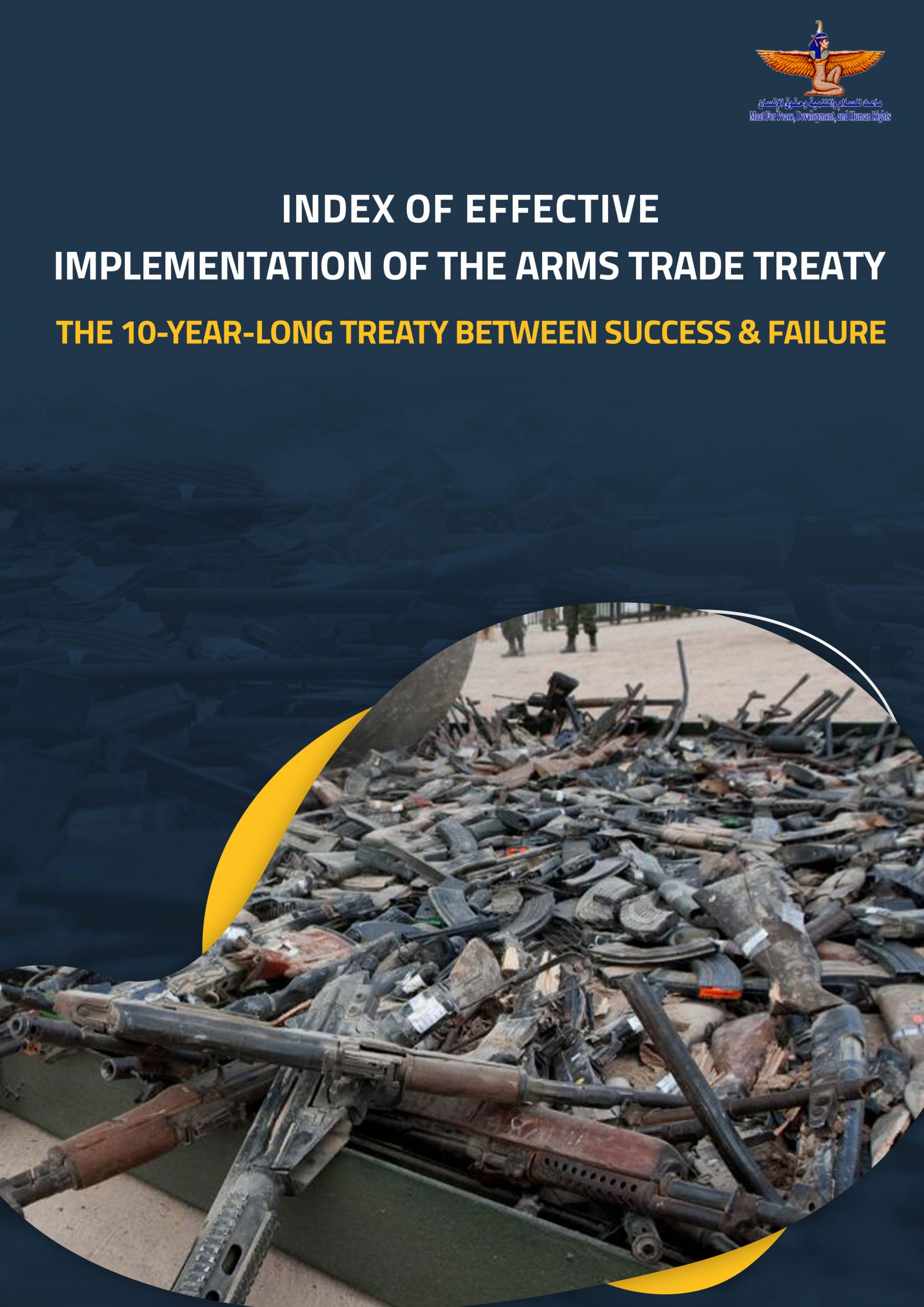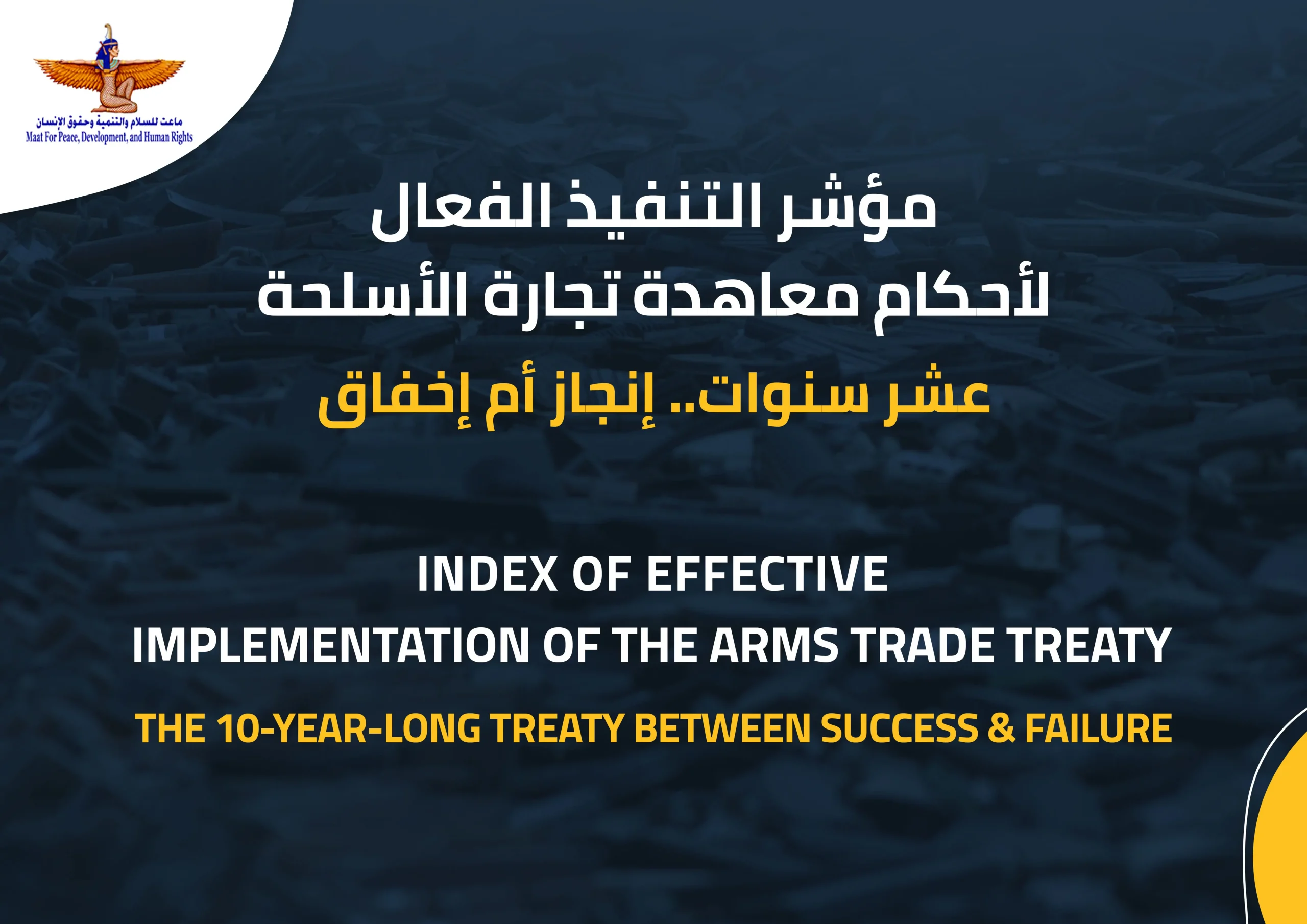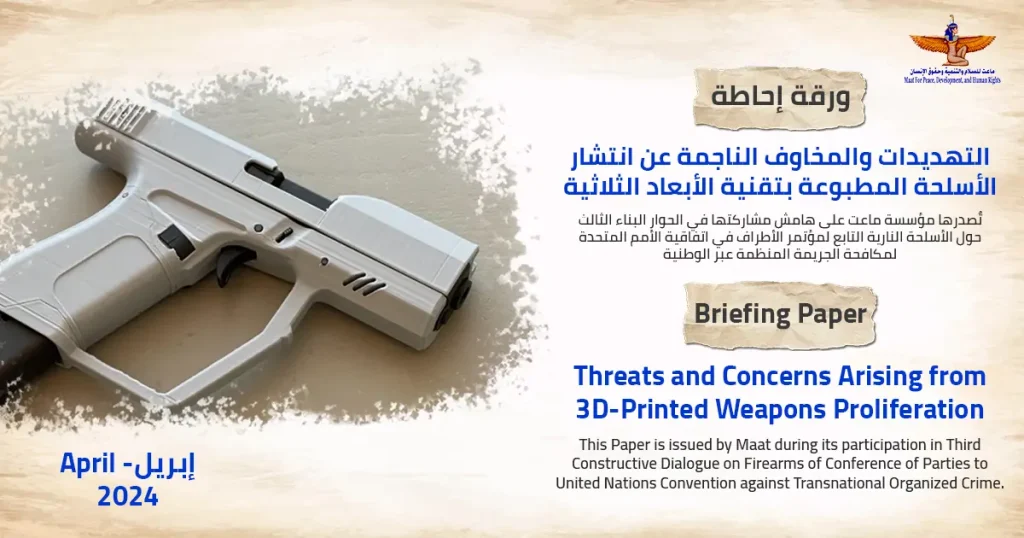Index of Effective Implementation of the Arms Trade Treaty:
The 10-Year-Long Treaty between Success & Failure
Introduction
Arms Trade Treaty (ATT) is the first legitimate international agreement regulating all operations related to international trade in conventional weapons. After the conclusion of dozens of treaties on the prohibition and disarmament of weapons of mass destruction, the international community has turned its focus to conventional weapons, which are also considered serious threats to international and regional peace and security, given their dire effects on human security and human rights. According to many international reports, conventional weapons proliferation and arms illicit trade are closely linked to the spread of internal armed conflicts and increased activity of organized crime groups and terrorist organizations, given the fact that arms transfer, which is expressed in international trade and the prohibition of illicit trade in conventional arms, is the most important factor in promoting international peace and security and human security. This significance reflects the international efforts made by the international community, led by the United Nations, during negotiation, final formulation of the provisions of the treaty, and convincing states to ratify their provisions.
Thus, illicit trade in arms and lack of controls is a major factor contributing to increasing the suffering of civilians in areas of armed conflict. Besides, ongoing human rights violations, and absence of unified and agreed international standards on the import, export and transfer of conventional weapons increases the possibility of conflicts, displacement of populations, spread of crime and terrorism, undermining opportunities for peace and stability, and thus impeding the implementation of the goals of sustainable development.
Being the first treaty of its kind, ATT can help countries make a significant difference in their arms exports and imports to ensure they are aligned with development goals. To this end, the ATT needs to be universally adopted so that it can contribute to the well-being of all, from supporting responsible defense capabilities to protecting vulnerable sectors of society against atrocities committed using illegally or irresponsibly trafficked weapons.
However, nearly ten years after the entry into force, the ATT has not yet been able to achieve many of its targets, nor has it established a governing framework for states through which they can commit to during arms transfers, whether by legal or illegal means. During this period, many conflicts have spread and many countries have violated their obligations under this agreement and even violated Security Council resolutions banning the transfer of arms to a number of conflicting countries, which resulted in many violations of human rights, especially the right to life.
This paper attempts to analyze the extent to which countries are committed to implementing the provisions contained in this Convention, especially those related to arms export and import to conflict areas, illicit transfer and change of destination, as well as what can be done for the optimal activation of these provisions.

 |
 |











